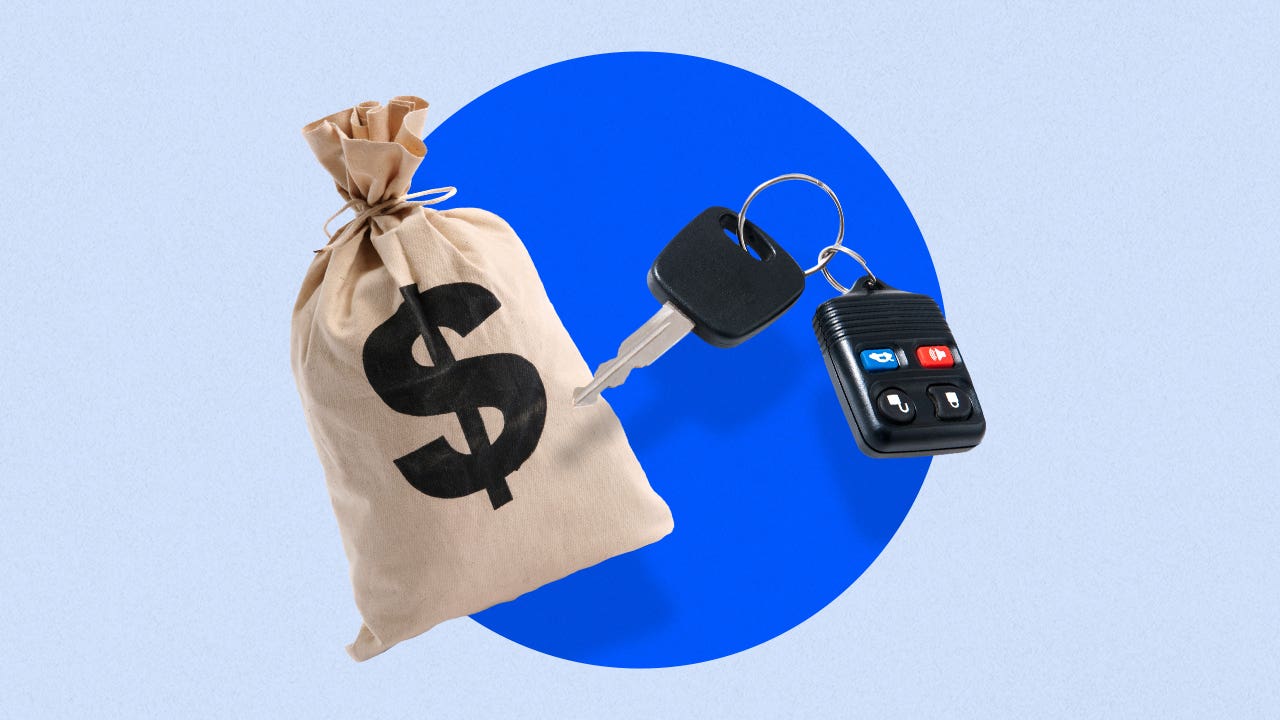What are the most common types of car loans?




Key takeaways
- The most common types of car loans include options from banks and credit unions, dealership financing and — if you don’t have a low rate — auto loan refinancing.
- Most auto loans tend to be secured, meaning the vehicle is collateral, but there are some unsecured personal loans that can be used for a vehicle purchase as well.
- Auto loans can be found through a variety of lenders and cover a large number of vehicles, but what lender you use will ultimately depend on the type of loan you need.
Whether you are in the market to buy a new car or looking to refinance an existing loan, there are different types of car loans available. The most common options are secured auto loans for purchasing a new or used vehicle, but there are other options that may be able to cover whatever financial need you have.
Secured vs. unsecured auto loans
When comparing your financing options, you’ll likely encounter both secured and unsecured auto loans. Most car loans are secured, but unsecured loans may be available to qualified borrowers.
Secured auto loans
Secured auto loans are the most common type of financing when you need to buy a car. The vehicle acts as collateral, which can help you qualify for a competitive rate, but the lender can repossess the vehicle if you default.

Pros
- Larger loan amounts.
- Easier to qualify for.
- Potentially lower interest rates.

Cons
- Less flexibility.
- Used vehicle restrictions.
- Risk of repossession.
Unsecured auto loans
Unsecured auto loans are technically personal loans used to finance a car purchase. These loans don’t use the vehicle as collateral, which makes them riskier for lenders. To qualify, you’ll generally need a solid credit score and payment history, along with a steady and verifiable source of income.

Pros
- More flexibility.
- Ability to secure funding before choosing a vehicle.
- May include a simplified application process.

Cons
- Increased potential for legal issues.
- Higher interest rates.
- Loan amounts can be smaller.
Car purchase loans
Car purchase loans are available through banks, credit unions, online lenders and dealerships. The amount you qualify for, and your interest rate, will depend on the lender, the vehicle and your finances. Your auto loan term will usually range from 24 to 72 months, although some lenders may offer terms of up to 84 months.
Depending on the financing arrangement, you will likely also be required to make a down payment. In general, your down payment should cover at least 20 percent of the cost of the vehicle, but it’s best to pay what you can comfortably afford.
Direct financing
Best for: Buyers who want more control and transparency over their loan.
Direct financing involves getting an auto loan from a bank, credit union or online lender — not the dealership. Preapproval gives you a better idea of what you can afford and strengthens your negotiating power at the dealership.
Interest rates also tend to be lower with direct financing, largely because there is no dealership markup. However, it is often more difficult to qualify for an auto loan from a lender. If you have fair or poor credit, you may be stuck with a high interest rate — if you are able to qualify.
Indirect financing
Best for: Buyers with lower credit or if you want a convenient shopping experience.
With indirect financing, the dealership works with a variety of financial institutions to secure a loan on your behalf. It will submit your application to its lending partners and, if you qualify, present you with an offer. However, dealers often mark up interest rates, which can make this option more expensive.
If you have strong credit or an established relationship with a financial institution, it usually makes more sense to finance there. If you plan to opt for dealer financing for its convenience, be sure to secure preapproval ahead of time to negotiate for a better deal.
Specialized auto loans
Beyond standard car loans, there are niche loan options designed to meet specific borrower needs. These include military auto loans and lease buyouts, among other options.
Military auto loans
Military auto loans, such as those offered by USAA, are tailored to active-duty service members, veterans and their families. These loans have strict guidelines set by the government and often feature:
- More flexible credit requirements.
- Lower interest rates.
- Deferred payments during deployment.
Lenders are required to abide by the Military Lending Act (MLA), which limits the annual percentage rate (APR) of an auto loan to 36 percent.
Lease buyout loans
A lease buyout loan is meant to cover the cost of buying your car once your lease period ends. Since lease payments only cover depreciation, your new loan may have a higher monthly payment than your lease. In addition, the money you’ve already paid — including your deposit — may not significantly reduce the cost of financing your leased vehicle.
Before you commit to a lease buyout, calculate how much leasing versus buying will cost you. Your budget will inform your final decision, but keep in mind that the costs of a lease buyout may outweigh the benefits, leaving you upside down on your loan.
Buy-here, pay-here loans
Buy-here, pay-here (BHPH) loans are offered directly by dealerships. While they can provide access to financing when other lenders deny you, these loans usually come with:
- Extremely high interest rates.
- GPS trackers or starter interrupters.
- High repossession risk.
Instead, shop for bad credit auto loans for a chance of approval at a lower cost. It may not lead to the most competitive interest rate, but it could still help you avoid predatory, high-cost auto loans.
Car title loans
Unlike other options on this list, car title loans are not designed to finance a vehicle. They are short-term, high-cost loans that use your vehicle’s title as collateral. Because they are generally easy to qualify for, many lenders charge high fees and only offer short repayment periods. Failure to repay can lead to losing your car.
Avoid title loans if possible. Explore safer options like personal loans from credit unions or other payday loan alternatives.
Auto loan refinancing
When you compare auto loan refinancing rates, you may be able to get a more affordable rate or extend your loan term to lower your monthly payment. You can also refinance to reduce your loan term and pay your loan off faster.
This type of auto loan could be a smart financial move for a few reasons. If market rates have dropped since you took out your current loan, it’s worth checking if a better rate is available. You may also qualify for a better deal if your credit score is higher than when you initially applied or if you used dealer financing and didn’t get the best rate.
You’ll need a FICO score of 670 or above for the best rates.
Cash-out auto refinance loans
A cash-out refinance loan allows you to refinance your current car loan and borrow against any equity in the vehicle. This is an option if your car is worth more than what you owe — which is frequently not the case.
While it can be a convenient way to cover expenses like debt consolidation or emergency costs, it also increases your loan balance and may extend your repayment term. It’s also an uncommon option that very few lenders offer, so you may be better off comparing personal loan rates to find a lender that won’t use your car as collateral.
Important auto loan terms
Understanding loan terminology will help you make more informed decisions. Here’s a quick breakdown of key terms.
Simple interest vs. precomputed interest
- Simple interest
-
With a simple interest auto loan, interest is calculated based on your remaining loan balance. This type of loan is by far the more common of the two and offers savings if you pay the loan off early.
- Precomputed interest
-
A precomputed interest auto loan calculates interest in advance using the original loan amount and loan term, often with the rule of 78. Even if you pay off the loan early, you’ll still pay most of the original interest, making early repayment less beneficial.
Bottom line
There’s no one-size-fits-all solution when it comes to auto loans. Your best option depends on your financial profile and loan goals — whether buying a new car, refinancing your current loan or buying your leased vehicle.
Before deciding which type of car loan is best, make sure you understand how to prepare for the application process. Also, compare auto loan rates to find the best lenders and get preapproved to ensure you score a competitive financing offer.
Why we ask for feedback Your feedback helps us improve our content and services. It takes less than a minute to complete.
Your responses are anonymous and will only be used for improving our website.
You may also like

What’s the average car loan length?

What is an auto loan and how does it work?

What is an auto loan and how does it work?

